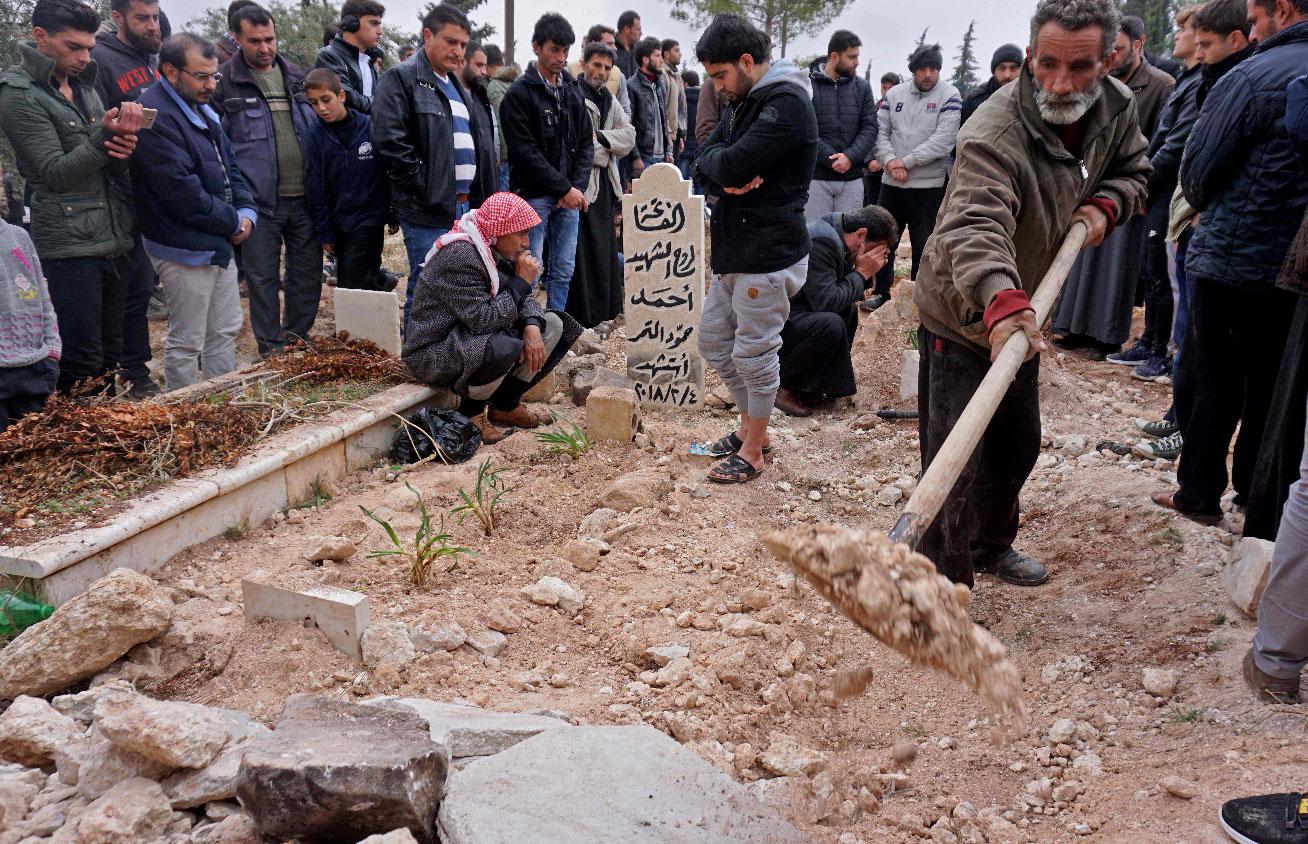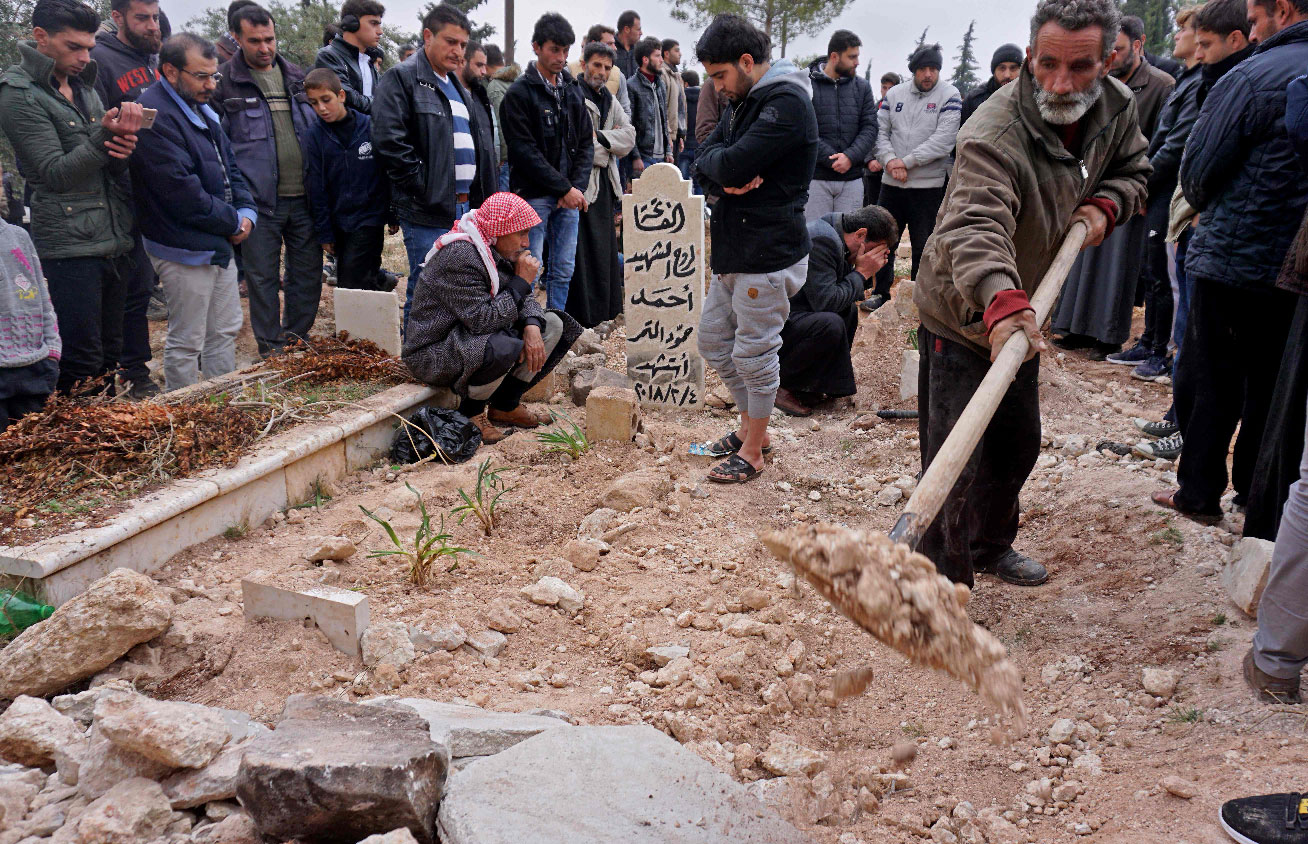Activists killed by gunmen in Syria's Idlib
BEIRUT - Gunmen killed two prominent Syrian activists critical of both the regime and jihadists Friday in the country's last major rebel bastion, their radio station and a monitor said.
Raed Fares and Hamod Jnaid were "shot dead by unknown assailants riding in a van in the town of Kafr Nabel" in the northwestern province of Idlib, Fresh FM said on its Facebook page.
Fares was an influential figure known for his often humorous signs in English and Arabic criticising President Bashar al-Assad's regime during weekly protests.
Their killings dealt yet another blow to the dwindling civil society movement that first sparked Syria's uprising in 2011.
The Syrian Observatory for Human Rights, a Britain-based war monitor, said the two men died of their wounds from the attack, for which there was no immediate claim of responsibility.
"They were famous for their criticism of rebels committing violations or arresting civilians, especially when it came to jihadist groups," Observatory chief Rami Abdel Rahman said.
More than half of Idlib and the surrounding region is controlled by Hayat Tahrir al-Sham (HTS), an alliance led by jihadists of Syria's former Al-Qaeda affiliate, while most of the rest is held by pro-Turkey rebels.
The Islamic State (IS) group also has a presence in the province.
Targeted killings and kidnappings have for months plagued Idlib, with angry residents blaming all sides.
Both men had been detained "several times" by HTS in the past, the Observatory said.
Fares and Jnaid were buried Friday after a large silent procession where their bodies were hoisted on mourners' shoulders then carried in open-backed cars, wrapped in the flag of the Syrian revolution.
On Saturday, dozens of their friends held a wake in their hometown of Kafr Nabel, while scattered protests in opposition-held areas condemned their killing and blamed radical Islamists, of whom Fares was a vocal critic.
Born in 1972 and the father of three children, Fares had been repeatedly targeted since he founded Fresh FM in 2013 to counter what he called "fundamentalist narratives" in Idlib.
Fares survived an earlier assassination attempt and was imprisoned by Islamist militants dominant in Idlib.
"He really was the main pillar of the radio. We owe it to him to continue the project he started," said Fares Barakat, a colleague of Fares at Fresh FM.
IS fighters raided the radio's offices on several occasions, but regime forces also bombarded it, he said.
'Voice of Kafr Nabel'
"In 2014, I almost lost my life when two armed men opened fire at me and shot me in the chest," he wrote in an op-ed for the Washington Times in June, after US funding to Fresh FM was cut.
"I was abducted four times by Al-Qaeda militants and released a few days later after being tortured."
Jnaid, who also worked at the radio, was an advocate for freedom of expression and the rule of law.
"I want freedom of opinion. I want to be able to speak and not be scared," he said in a video posted on Facebook earlier this year.
Born in 1980, Jnaid had five children, including a disabled girl, according to his friends.
Bilal Bayush, a friend and fellow activist, rushed to the hospital as soon as he heard about the shooting.
He and others waited anxiously as Fares fought for his life in the operating room, until the doctor emerged to give them his condolences.
"They had been the voice of Kafr Nabel since the beginning" of the uprising, Bayush said.
"We buried them, but we still don't fully realise" that they have died, he said.
A September deal between regime ally Russia and rebel backer Turkey held off a major regime assault to retake Idlib.
But a buffer zone has yet to be implemented around the region, as stipulated by the deal, after jihadists refused to withdraw from a planned demilitarised area by mid-October.
Syria's civil war has killed more than 360,000 people and sent millions fleeing from their homes since it started in 2011 with the brutal repression of anti-regime protests.
It has since evolved into a complex conflict involving world powers and jihadists.
A wave of targeted killings and shooting inside rebel-held Idlib and surrounding areas has claimed more than 390 lives since April, according to the Syrian Observatory for Human Rights.


